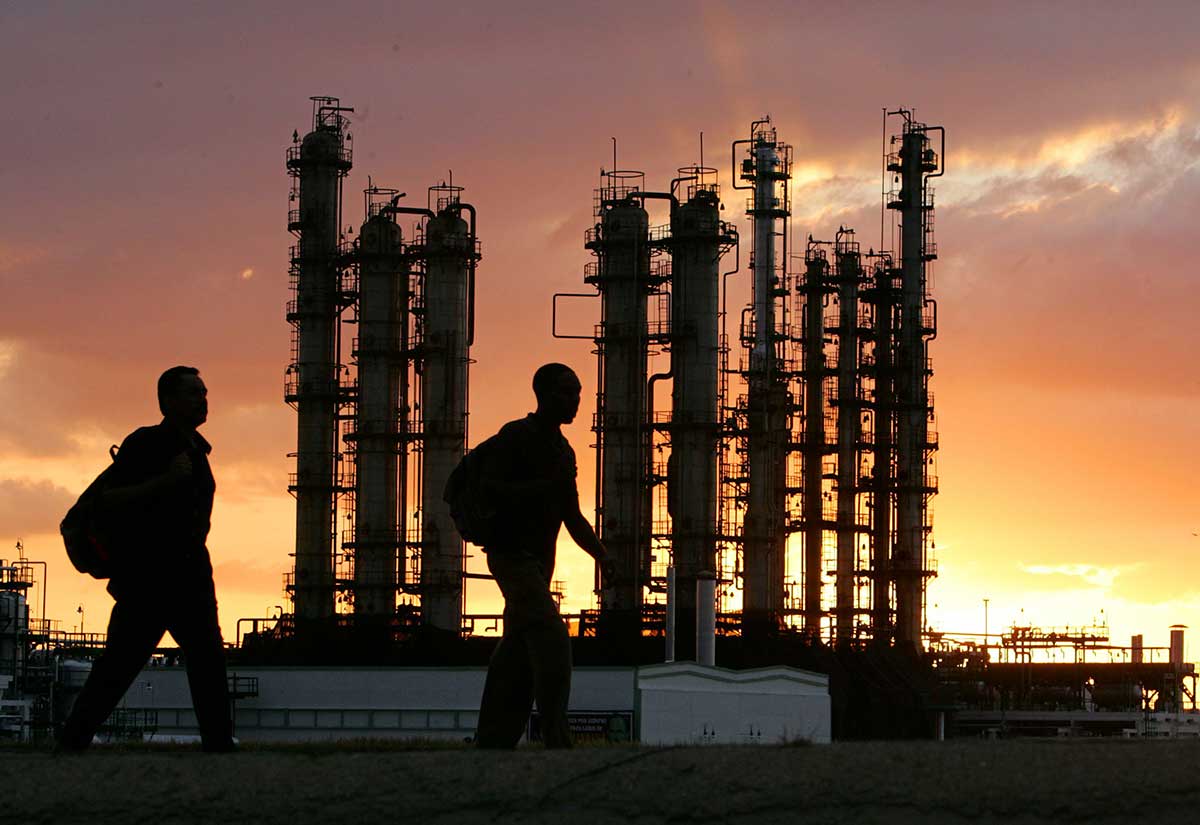Oil fell, erasing earlier gains, as investors shrugged off concerns over geopolitical risks after Saudi Arabia intercepted ballistic missiles fired by Houthi forces in Yemen.
Futures in New York fell as much as 0.6 percent. Priced had earlier risen as much as 1 percent on speculation a worsening of the situation with Yemen will lead to supply disruptions in the oil-rich Middle East. Meanwhile in China, the country began trading its first ever crude-futures contract on Monday as the world’s biggest oil buyer seeks to wield greater power over pricing and challenge benchmarks in the US and Europe.
Oil last week posted its biggest weekly advance since July after President Donald Trump appointed John Bolton as national security adviser, signalling the US may be turning to a harder line on OPEC producer Iran.
On top of concerns over that country, if supplies from Saudi Arabia also get disrupted, the oil market may see a supply shortage as US output won’t be enough to cover a decline in barrels from the Middle East, according to Japan Oil, Gas & Metals National Corp.
“The Yemen attack froze investors’ blood and raised prices,” Takayuki Nogami, chief economist at state-backed Japan Oil, Gas & Metals National Corp., said by phone from Tokyo. “But the view now is that the situation hasn’t really changed yet as Saudi Arabia intercepted the missiles, so investors are taking profit.”
West Texas Intermediate crude for May delivery fell as much as 42 cents to $65.46 a barrel on the New York Mercantile Exchange, erasing an earlier 67-cent gain. The contract traded at $65.59 at 1:54 a.m. in Tokyo. Total volume traded was about 99 percent above the 100-day average.
Brent for May settlement dropped as much as 29 cents to $70.16 a barrel the London-based ICE Futures Europe exchange. The contract advanced $1.54 to $70.45 on Friday, the highest level since late January. The global benchmark traded at a $4.71 premium to WTI.
China’s yuan-denominated futures for September settlement traded at 432.3 yuan a barrel ($68.47) on the Shanghai International Energy Exchange at a midday trading break. The long-awaited contract, open to foreign investors, was about $4 a barrel higher than WTI earlier in the day.
Oil prices in New York and London jumped earlier after rebels in Yemen targeted various airports in Saudi Arabia. The Kingdom said it intercepted seven ballistic missiles fired at Riyadh and other cities by Houthi forces in Yemen, marking an escalation from previous rocket launches at the kingdom.
Meanwhile, in the US, drillers added four working rigs last week, bringing the total to 804, the highest since March 2015, according to Baker Hughes data released Friday. That’s the eighth increase in nine weeks.









